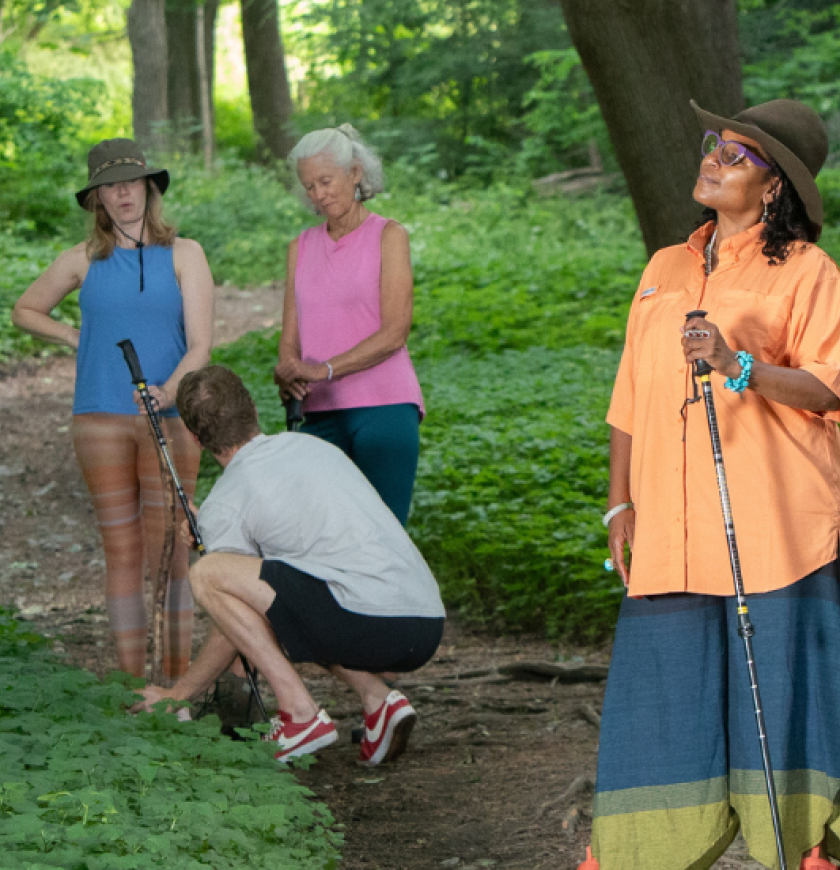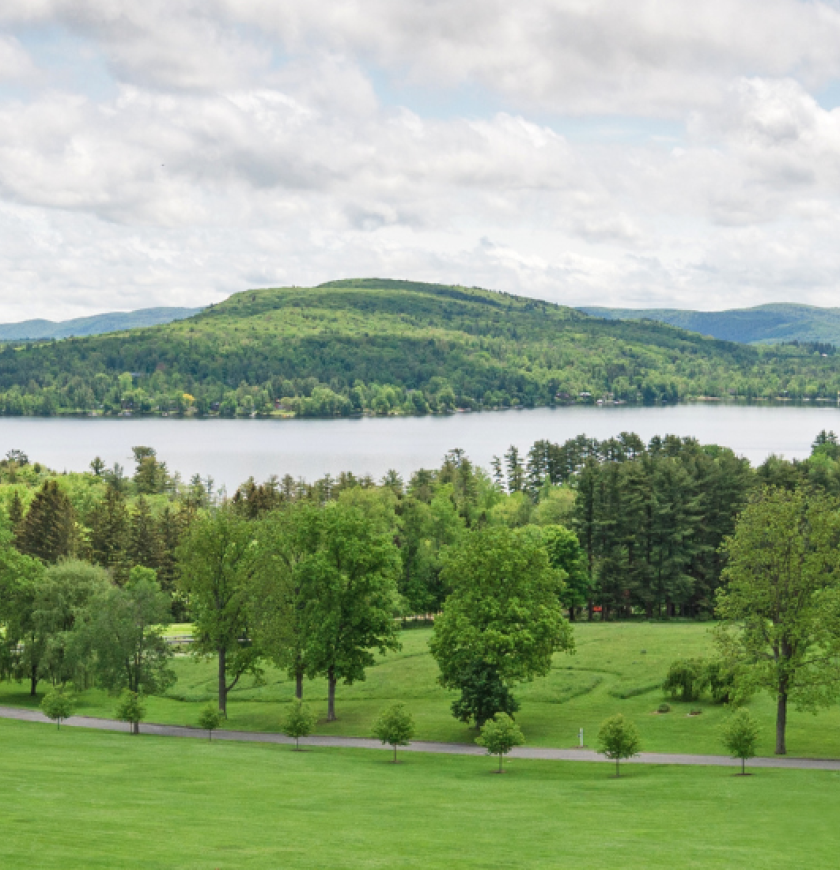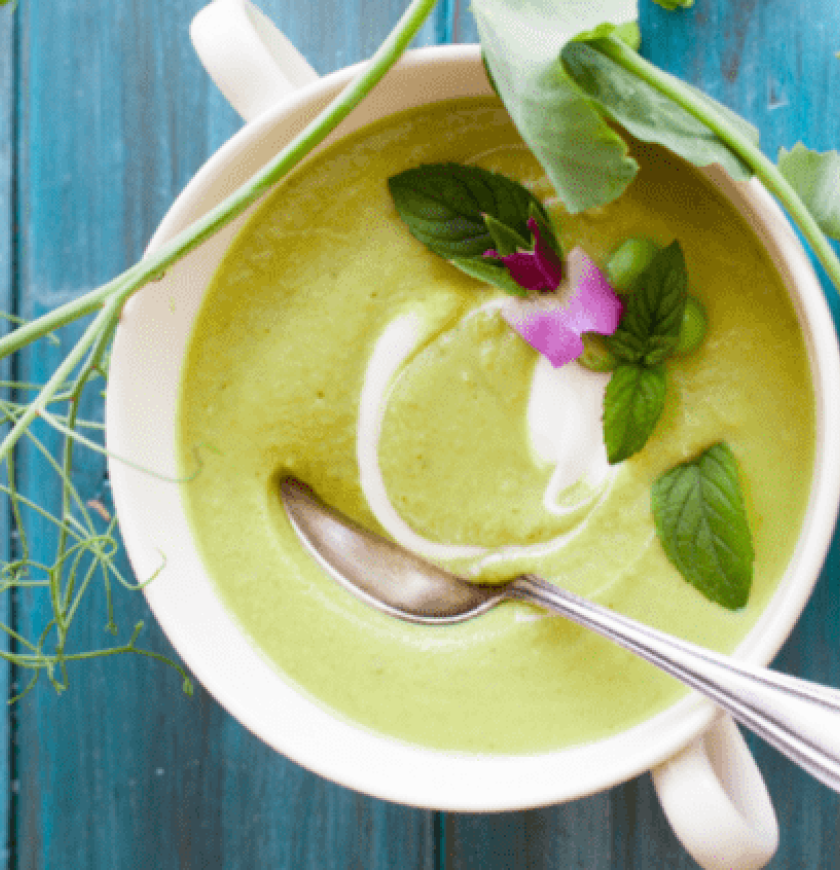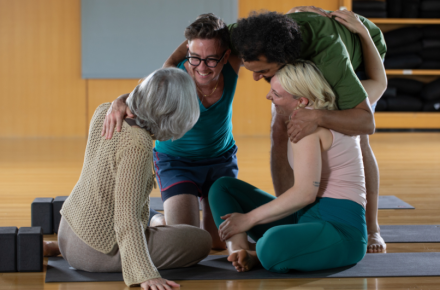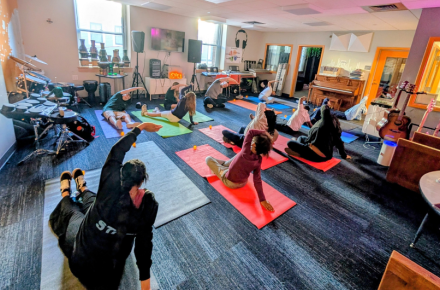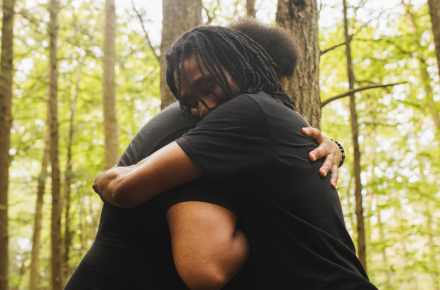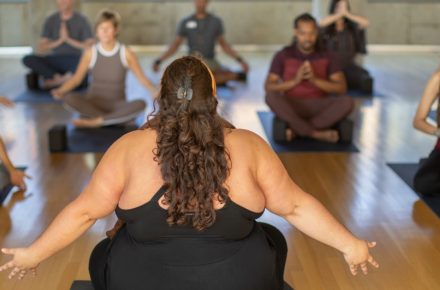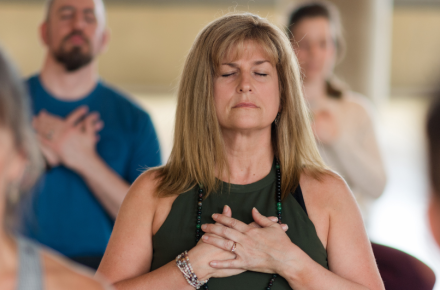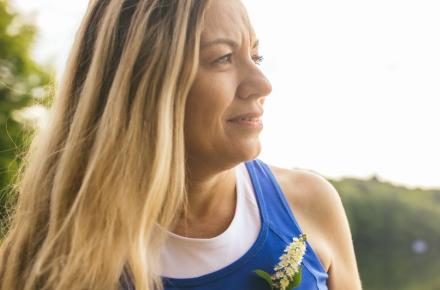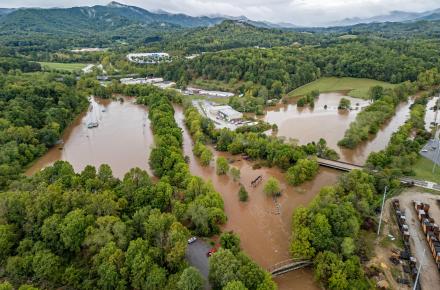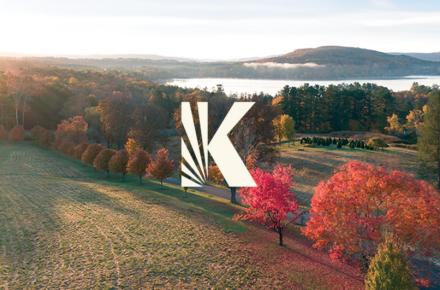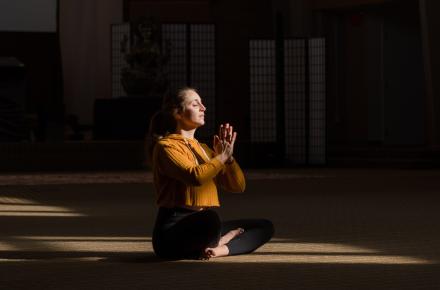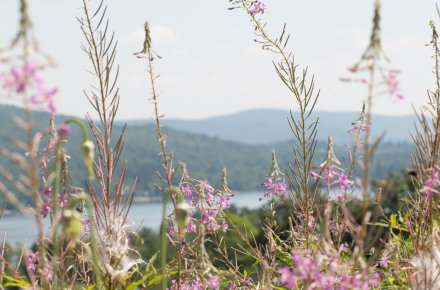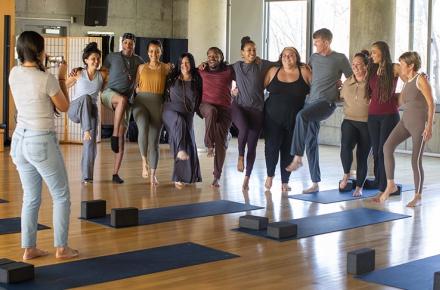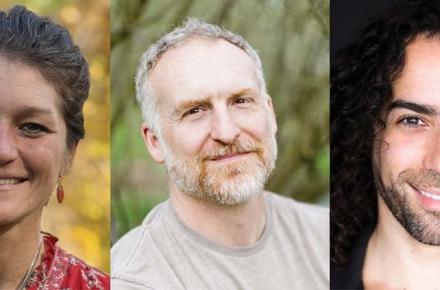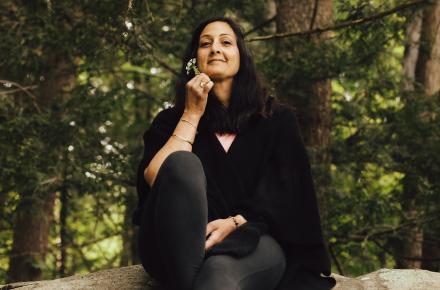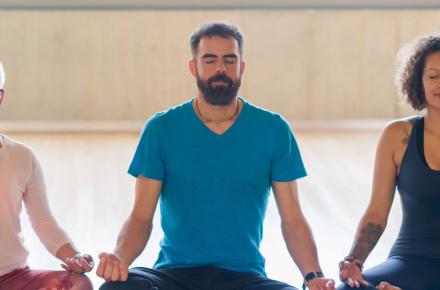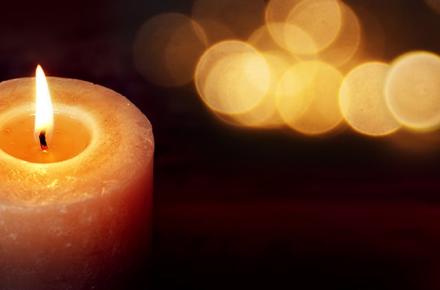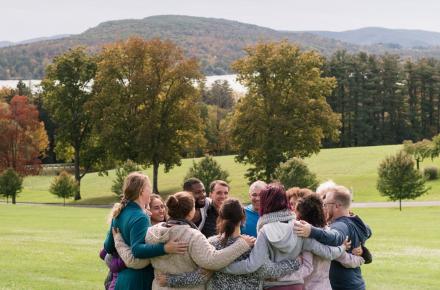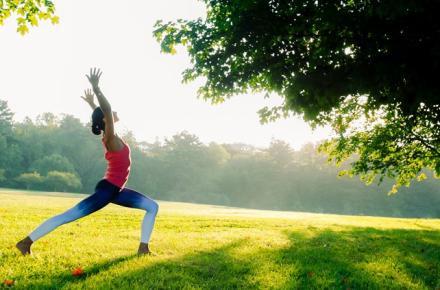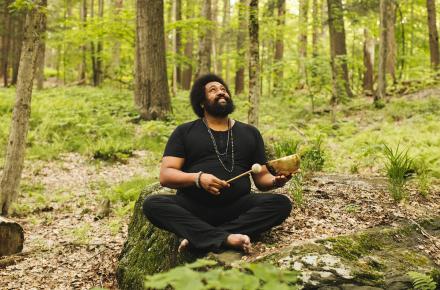‘What I Know’: A Black Woman’s Words
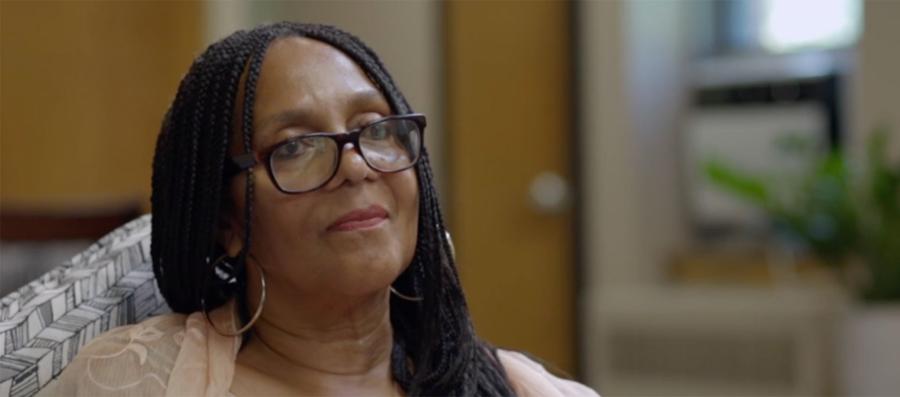
July 23, 2020
by Kristen Wise
“Being Black overrides everything for me. Nothing is as thunderous in my life as racism. It seems to eclipse everything. It’s the repetitiveness of it. And the fact that it comes from every corner and nook.”
These are the piercing words of Maya Breuer, Vice President of Cross-Cultural Advancement for Yoga Alliance, co-founder of the Black Yoga Teachers Alliance, an Emerita Trustee of Kripalu, and the creator of the Yoga Retreat for Women of Color™.
On the day of George Floyd’s funeral in Houston, Texas, she sat down to reflect on history, institutionalized oppression, the intersection of spirituality and activism, her place in the Black Lives Matter movement, and the opportunity for change within Kripalu.
“When you’re suffering, you reach for something.”
As a yoga teacher for over 30 years, Maya brings a distinct commitment to social justice, which is informed by 401 years of racialized injustice. “I believe in paying homage. Reading the history of Black America, the history of slavery, their voices and stories, so it’s not jaundiced by some other telling than the person who was living the experience.”
She quickly speaks to the pain. “I’m a person who lived through the ‘60s, the ’70s, the ’80s. That means I was present with Dr. Martin Lurther King. I was present with Rodney King. And I’ve been present through all the violent deaths of Black men and women through recent decades—and you can’t shake what you know. That is now the fiber of my being.”
It is through the example of South Africa that a glimmer flashes in her eyes.“I’m thinking about Nelson Mandela and the many years he spent in jail and the horror of the apartheid. [How they were] moved to a place where there were conversations, forgiveness, apologies. Where people looked at the way Black African people were treated.
I keep having that vision of What if we did that in America? In every state and every town. If people who were not black and brown would muster the courage to recognize the wrong that has been done.”
As a former assistant director of the Equal Employment Opportunity Commission, Maya proceeds with the list of wrongs: “Lack of adequate housing. Food deserts in our communities. Lack of job access. Lack of opportunities. Poor education. Poor healthcare. And poor treatment.”
“Here I am.”
A native of Rhode Island, Maya was raised with the strong influence of her grandparents, a foundation that helped shape the life she would live into. “So many people don’t know these metaphysical practices. Those that were lost from our ancestors because they came and had to become acculturated to the colonialization in order to survive. So many of our things were lost.” She sites sassafras tea, rhubarb, asafetida, and the burning of sage as trusted go-tos for both preparation and rest.
Simultaneously, she has woven traditional wisdom with modern-day mandates as she raised three children in Providence. “As a young mother, I had to sit them down and explain you’ll be treated differently.” Family meetings were centered around what was important to know “because they were Black,” including never leaving the house without a license or some form of ID. Despite her best efforts, racialized inequities were endured. Her daughter was denied As and accused of cheating despite perfect test scores. Maya was forced to defend her daughter’s brilliance on more than one occasion. Her two sons would often be profiled for living near Brown University’s campus. They would come home accompanied by police officers and she would have to attest they lived there.
“Here I am. A typical Black mother of children, a grandmother. And I keep getting knocks upside the head just for being Black. That causes a lot of challenge and difficulty.” She adds, with a sigh, “I know I’m not unique.”
“I don’t ask man, but I ask God: Why?”
Steady in naming anger both individual and collective, Maya also expresses an unwavering resolve. “I feel empowered to stand. I stand for two things. I stand because I know there is a God and I know there is a reckoning coming just based on my history, my faith, my family. Then, I stand in the truth. Even though this is a time of great “not knowing”—and in yoga, we call it beginner mind— I stand in that space of beginner mind knowing I don’t know what’s to come but I want to be a voice that influences what is to come.”
Her vision is rooted at the intersection of her lived experiences and her studies. “I come with what I know. And what I know most fully is being Black and I also know yoga. 'Cause I’ve spent 30-something years studying, practicing, teaching. [Yoga can be] integrated into the basket of how-to’s to move us forward. Such as the practice of breathing and relaxation for people who have been traumatized. Not that I’m not gonna speak up in a minute if someone was to ask me about defunding the police. I will share my awareness but I want to come forth with what I know is my forte.”
As she circles around that clarity, a theme of faith reemerges. She picks up on the words Reverend Sharpton elucidated during the eulogy hours earlier: “The sister to hope is called faith. Faith is the substance of things hoped for, the evidence of things unseen.”
“I was taught about faith and that’s why I have hope,” Maya says. “When I think about slavery, what could have brought them through that but faith and hope? To me, hope has a deep meaning. I align it with my faith in God. I don’t use hope lightly. When it comes to matters of significance for all of us, I can hope. I am hoping for a change of heart, having faith that minds will be awakened, that hearts will be opened, that spirit will be replete and enlivened, and that people will know the truth. It’s faith [in] justice.It may not come in my lifetime but I know it’s coming.”
Within her examination, Maya also addresses the underbelly. “I don’t have fear. Fear stands alone. It is was one of the most detrimental ways of being that one can embody. Fear slows your down, it clouds your mind, it slows your breath, it can immobilize you physically.” After a slight pause, she adds, “You know I’m fearless. I choose to be that way. I’m fearless but I’m not foolish.”
“You can’t shake what you know.”
In response to Rev. angel Kyodo Williams’ recent article addressing “the construct of white privilege as an illness ... this disease keeps us from fully knowing each other,” Maya affirms, “We live in a culture that’s full of isms that have risen out of wrong knowing: racism, sexism, classism. That category of wrong knowing ... if I had time, I would sit here and list a lot of things that fall under wrong knowing.” Afropunk has grounded its mission on these stated tenets.
“The people who are in charge, the leaders of our country, white men [who are overly represented in government], people in positions of power who can influence others often create wrong knowing.” She proceeds with the example of the White House and dips into her Sanskrit. “Satya is telling the truth. The Bible and yogic philosophy share this tenant of truth. Someone who stands every day and is unable to be in satya, [who] is unable to tell the truth, [who] is unable to follow the Ten Commandments is wrong knowing magnified.”
Orienting in the body, she points to the hara center, two fingers'-length below the navel. “From this place, I have a knowing. Here I know my truth. The purusha is the inner knowing. When I saw the violent murder of George Floyd, it was a knowing. The knowing that it was an assault on a human being. That was the first knowing. And knowing the suffering. I could feel the pavement under this man. And feel the weight of the officer’s body. It stirred up a truth in me that I cannot shake.”
After a long pause, Maya addresses another knowing that has been steadily flagged personally and within the BIPOC community—institutions lacking representation and the prevailing whiteness of the wellness industry in general, including Kripalu.
“I’m always struck by the whiteness of the organization. It was 1985 when I first started and it’s still very similar to when I first came through the doors. As the first Black board member at Kripalu and now an Emeritus trustee, I think it’s time for change, and Kripalu is very aware and its leadership is very aware. I know they are working to change that. Prior to COVID-19, [Kripalu was] having to change how they operate and [they were] in the midst of looking at creating a new paradigm that was more inclusive. The work has not stopped [because of the decision not to open its doors in 2020]. Their consciousness has shifted.”
She is quick to name the leadership as “very forthcoming” and points to recent announcements — one directly addressing Black Lives Matter and the other a broader message committing to transformational work from Kripalu CEO Barbara Vacarr. The quest is now to live out the foundational vision, mission, and commitment to serve humanity and serve all people.
“Yoga gives us all being.”
As people continue to reach out to Maya asking, “What do you think I should do?” she roots deeper into her own clear knowing. “During the final days of my studies in India, I asked a question of one of our teachers, Guru Mai: “What can I do for my people? There are so many challenges for black and brown people in America. What should I bring home to them? Where should my focus be?” Her response: “Teach the breath, Maya, teach the breath.”
This simple statement affirmed how invaluable pranayama is. To consciously learn how to direct attention, become present, to heal, to achieve relaxation. It also now touches a painful and raw nerve first for our country, with the murder of Eric Garner, and now the world, with the murder of George Floyd. “It’s striking to me, the words I can’t breathe—it’s a wall against everything I stand for,” she says. “Without the breath, there is no life.”
Maya’s commitment to the teaching continues to fortify. “For the world to realize we can use our breath to change what is. Just sitting with the breath. Sitting before we jump up and make the new system that is not doable or sustainable. If we breathe [first] and focus on the breath, it will give us the wisdom, the wherewithal, the questions to ask, so that we come out with something that can really live.”
Noting the unprecedented momentum among national and global protests, she is quick to recognize how offputting and counterintuitive this may sound. “[There are] activists on the frontlines and activism in many forms. I think there is a time for everything. A person who is young may look askance at this advice because they have so much energy—rajas. We are very lucky. There are many people protesting—of all ages, ilks, colors. Maybe it begins with the elders holding the space and breathing, and then when the younger people have to sit, they sit in the breath.”
A moment of pause and then a quick clarifier: “It doesn’t mean you have to do this for 15 minutes or an hour. Do it for three! You can sit for one minute and something be revealed to you or your breath open up a space in you that gets [you] full of what you need.”
She is eager to take this message to legislators and the government. “I’d say: Let us just sit and breathe. Then let us move forward with the plan. It’s so symbolic given I can’t breathe.”
“There’s room for all.”
With deep regard for the moment and staying present and mindful, Maya chooses to trace back to her ancestral roots. “Sankofa—to go back and get it. It’s the African practice. You have to turn your head like the bird that symbolizes Sankofa and look behind. You’ll always see the elders bringing up the rear. We need the elders to help us stand. We need that good sense that comes from elders.” Her eyes smile.
The metaphor of layering comes forward in her final appeal. “Pay homage to the elders. And know that wisdom comes from them, and layer that with the middle age, and layer that with the youth, and layer that with the children. Then we’re going to go somewhere. I don’t think anyone should be left out of the discussion, the equation, the work, or the results.”
Kristen Wise is an embodied listener dedicated to dialogue and discovery. Her work in brand marketing, communications, and partnership development focuses on elevating awareness and directing resources at the intersection of social impact and culture. As a coach, she holds space to explore inner knowing, reclaim wholeness, and navigate transitions with courage. wisekristenwise.com

